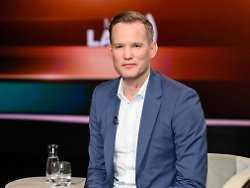Virologist Streeck with Markus Lanz
“Repeal of the mask requirement no mask ban”
By Marko Schlichting
3/30/2022 3:52 am
Almost all corona protection measures will fall next weekend – at least in most federal states. These can now only impose rules such as the mask requirement for hotspots, although the criteria are not defined. Hardly anyone seems really happy with the new Infection Protection Act, and virologist Hendrik Streeck also sees a need for improvement with Markus Lanz.
The war in Ukraine has replaced the Corona crisis as the dominant topic on talk shows. The pandemic, meanwhile, hasn’t gone away, and it’s coming back into focus. Because despite a seven-day incidence of a good 1700, most protective measures are not taken at the weekend. However, the federal states can impose further restrictions on hotspots. These include an extended mask requirement or access rules for special facilities. To do this, the state parliaments must determine a critical situation there. The Hamburg Parliament is expected to declare the entire city a hotspot this Wednesday, initially for four weeks. This means that the mask requirement continues to apply indoors and in retail, among other things. Mecklenburg-Western Pomerania has already taken this step. In Thuringia, the decision is due on Thursday. There, the majority of the state parliament is likely to decide against maintaining extended corona protection measures. Most of the measures are also taken in all other federal states.
“Don’t lose sight of the Corona situation”
Hamburg’s First Mayor Peter Tschentscher from the SPD warns Markus Lanz on ZDF against losing sight of the current corona situation. “That seems a bit like the case to me,” he says. The situation in the hospitals in the Hanseatic city is currently anything but relaxed. Hamburg therefore wants to maintain the mask requirement for the next four weeks if the citizenship decides so. Tschentscher calls the mask requirement “a very, very effective measure that is very mild in terms of the depth of the intervention”.
Tschentscher does not very much agree with the new infection protection law passed by the federal government. “It could have been better,” he says at Lanz. It is now somewhat cumbersome to continue the basic protective measures.
“Law is transitional”
Virologist Hendrik Streeck also criticizes the law, but points out that it is only a transitional regulation. The Infection Protection Act is currently being evaluated. It will also be checked how such a law can be drawn up for future pandemics and which measures really make sense.
Among other things, Streeck finds the limitation of the convalescent status to three months wrong and would like the duration to be adjusted throughout Europe. In addition, it must be precisely defined when the health system is overloaded and stricter protective measures would have to take effect. “That’s extremely important: if we say there’s a risk of overloading, we also have to say where our limit values are,” he says.
Streeck expects the corona situation to ease in the summer. This time must be used so that politicians part with short-term action. “We have to take a long-term look at which measures have actually had an effect. These are primarily vaccinations and masks. And we have to throw a lot of other things overboard that have become established so that we can continue to deal with this virus in the years to come. It will don’t go away,” demands Streeck for the future.
For now, Streeck says: “Masks are an effective tool.” They were used to prevent infection. It is up to citizens and politicians to decide whether there will still be a mask requirement in the future or whether personal responsibility will apply. Streeck himself wants to continue wearing a mask “if I have the feeling that there could be a high risk of infection.” Because: “Of course, lifting the mask requirement is not a transition to a mask ban!”
